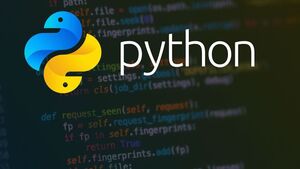(3-5 of March 2022)
Brief introduction.
In 2014 Ethiopia established a small Entoto Observatory (EO) with two 1m telescopes, and in November 2016 the Ethiopian Space Science and Technology Institute (ESSTI), the first research centre of such kind in the country and all East African region. Putting EO in fully operational mode faced many challenges until now, and since its establishment, the two Entoto telescopes went through different challenges that affected their functioning. This includes the problem with the spherical aberration of primary mirrors on both telescopes in the first year, problems with the main software that was blocked for 1.5 years resulting in both telescopes being fully non-operational (until 2017), strong lightening problems that occurred in 2016 destroying many components not available on the local market, going through mirrors re-coating process and difficulties found after their new installation in 2017, bureaucratic/administrative process that took a long time from both ESSTI and Astelco (Germany) side for bringing the spare parts of damaged components to be finally replaced in Feb 2020, COVID pandemic along 2020, re-structuration of the A&A department and Instrumentation Unit, lack of proper management of the observatory, interruptions due to civil conflict in Ethiopia and security issues, and the current interruptions due to the construction at the Entoto site. However, in the previous semester, we managed to start with sporadic observations and once the current construction is finished at Entoto, we hope to be able to start with the full exploitation of both telescopes in terms of both science and human capacity development.
At the same time, since the establishment of the institute the post-graduate MSc and PhD program in astronomy and astrophysics has been running. It is worth mentioning that all of our PhD and most MSc students are already lecturers at some of the public Ethiopian universities, and that after their studies they will continue teaching many other students. Besides the ESSTI, several Universities have also program in MSc and PhD in astronomy, and as a result of all of these activities, we now have a significant number of MS and PhD holders across the country working at different universities. Those people who didn’t obtain their MSc/PhD degree at the ESSTI do not have almost at all any background in observational astronomy.
The aim of this workshop is to improve the skills in observational astronomy of the general astronomical community in Ethiopia, focusing in particular on optical astronomy. We hope that this will help with the better use of the two telescopes in the future, and that EO can start benefiting astronomy development in the country and East African region.
This workshop is aimed to be the first one in the line of human capacity development in relation to EO. The second workshop will be organised after the rainy season (Oct) with an aim to already start with observations and develop small projects for the EO. The workshop will be conducted in collaboration with colleagues from Ariel University in Israel, Prof. Lev Tal-Or, Dr. Volker Perdelwitz, and Ms. Jerusalem Tamirat (currently PhD student). Therefore, through this workshop and planning of small research projects, we aim to also strengthen the research collaborations in astronomy between Ethiopia and Israel.
The main objectives of this workshop are the following:
- To introduce all participants to observational astronomy, telescopes, and astronomical data.
- To introduce all participants to astronomical observations.
- To introduce all participants to optical photometric data reduction and calibration.
Dates.
Thursday 03 – Saturday 05 March, 2022 (3 full days, morning and afternoon)
Participants.
Participants shall have either MSc and/or PhD in astronomy, or currently going through MSc or PhD studies in astronomy. This will cover different public universities across Ethiopia where currently there are earlycareer researchers in astronomy who finished recently their MSc and/or PhD and went back to their university for lecturing. In our knowledge the list of participants shall include the following institutions (ordered alphabetically):
Adama University of Science and Technology, Addis Ababa University, Arba Minch University, Bahir Dar University, Bule Hora University, Dilla University, ESSTI, Jiijga University, Jimma University, Kotebe Metropolitan University, Mekelle University, Warabe Unviersity, Wellega Unviersity, Woldiya University, and Wolkite University.
Expected outcomes.
With this workshop we expect that participants will get introduced to observational astronomy, optical data reduction and calibration, facilities available at EO, how they can use these facilities and what kind of research they can do, and improve the computational skills of participants and their knowledge regarding astronomical data.
In addition, since this will be the very first workshop to bring together all astronomical communities in Ethiopia, it will open the opportunities to strengthen connections and improve research collaborations on a national level, in particular focusing on bursting the research at universities out of Addis Abeba.
Finally, with the significant contribution of our colleagues from Ariel University in Israel, we expect that this very first workshop will open and improve possibilities for research collaborations between the two countries.


